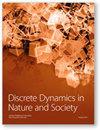互联和自动驾驶车辆与人类驾驶车辆混合交通流静态交通分配问题的重要解决方案之间的关系
IF 1.2
4区 数学
Q3 MATHEMATICS, INTERDISCIPLINARY APPLICATIONS
引用次数: 0
摘要
与人类驾驶的车辆相比,互联和自动驾驶车辆可以通过排驾技术降低整个网络的交通拥堵水平。提高排驾驶技术效率的一个可行方法是为联网和自动驾驶车辆部署专用车道或道路。由于不同类型车辆之间的非对称互动会加剧道路拥堵,因此有必要区分路线以实现高效的交通管理。然而,传统的交通分配问题只将用户均衡作为约束条件,用户之间的出行时间没有差异,因此无法提出全局最优解,因为它会产生无限多的局部最优解。最近的研究试图通过将整个系统的旅行时间总和作为额外的约束条件来克服这种局限性。他们的研究试图通过最低总旅行时间解决方案(最佳情况)来帮助提出最佳部署战略,或通过最高总旅行时间解决方案(最差情况)来设计稳健的交通规划战略。然而,以往的研究并未关注最佳/最差情况在现实中出现的可能性。本研究的重点是过去研究中指出的两种解决方案与现实中可能出现的交通模式之间的关系。本研究解释了静态交通分配问题的 Karush-Kun-Tucker 条件,考虑了非对称交互作用,并提出了一种使用离散动力学的求解算法。提出的算法扩展了交通规划研究中最广泛使用的方法,通过简单的变化克服了非对称交互问题的局限性。所提出的算法可以可靠地得出两个解决方案,而熵理论表明,如果没有专用车道或道路等附加政策,这两个解决方案在现实中都不太可能出现。本文章由计算机程序翻译,如有差异,请以英文原文为准。
Relationship between the Significant Solutions of Static Traffic Assignment Problems for Mixed Traffic Flow of Connected and Automated Vehicles and Human-Driven Vehicles
Connected and automated vehicles can reduce the traffic congestion level of the entire network through platoon-driving technologies compared to human-driven vehicles. One promising approach to enhancing platoon-driving technology’s efficiency is deploying dedicated lanes or roads for connected and automated vehicles. Since asymmetric interactions between different vehicle types increase road congestion, it is necessary to distinguish routes for efficient traffic management. However, the traditional traffic assignment problem, which uses only user equilibrium as a constraint with no difference in travel time between users, could not be proposed as a globally optimal solution because it generates an infinite number of locally optimal solutions. Recent studies have attempted to overcome the limitations by considering the sum of system-wide travel times as an additional constraint. Their research sought to help propose optimal deployment strategies through the lowest total travel time solution (best-case) or design robust transport planning strategies through the highest total travel time solution (worst-case). However, past studies have not focused on the possibility of the best/worst case appearing in reality. This study focused on the relationship between the two solutions pointed out in past studies and traffic patterns likely to appear in reality. This study interprets the Karush–Kun–Tucker condition of the static traffic assignment problem, considering the asymmetric interaction, and proposes a solution algorithm using discrete dynamics. The proposed algorithm extends the most widely used method in transportation planning research, which can overcome the limitations of asymmetric interaction problems through simple variations. The proposed algorithm can reliably derive two solutions, and entropy theory shows that both solutions are unlikely to appear in reality without additional policies such as dedicated lanes or roads.
求助全文
通过发布文献求助,成功后即可免费获取论文全文。
去求助
来源期刊

Discrete Dynamics in Nature and Society
综合性期刊-数学跨学科应用
CiteScore
3.00
自引率
0.00%
发文量
598
审稿时长
3 months
期刊介绍:
The main objective of Discrete Dynamics in Nature and Society is to foster links between basic and applied research relating to discrete dynamics of complex systems encountered in the natural and social sciences. The journal intends to stimulate publications directed to the analyses of computer generated solutions and chaotic in particular, correctness of numerical procedures, chaos synchronization and control, discrete optimization methods among other related topics. The journal provides a channel of communication between scientists and practitioners working in the field of complex systems analysis and will stimulate the development and use of discrete dynamical approach.
 求助内容:
求助内容: 应助结果提醒方式:
应助结果提醒方式:


